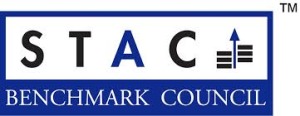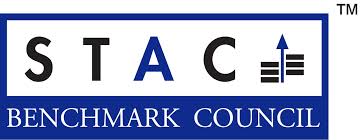 The STAC Securities Technology Analysis Center has published new STAC-2 benchmarks showing record performance on the Intel Haswell EP processors coupled with the Intel Xeon Phi. STAC-A2 is a user-developed benchmark standard based on financial market risk analysis. Designed by quants and technologists from some of the world’s largest banks, STAC-A2 reports the performance, scaling, quality, and resource efficiency of any technology stack that is able to handle the workload.
The STAC Securities Technology Analysis Center has published new STAC-2 benchmarks showing record performance on the Intel Haswell EP processors coupled with the Intel Xeon Phi. STAC-A2 is a user-developed benchmark standard based on financial market risk analysis. Designed by quants and technologists from some of the world’s largest banks, STAC-A2 reports the performance, scaling, quality, and resource efficiency of any technology stack that is able to handle the workload.
Intel recently asked STAC to use the STAC-A2 Benchmark suite to test a 2-socket white box server with Haswell EP processors, both with and without an Intel Xeon Phi co-processor card. The implementation code (“STAC Pack”) that we tested with the Haswell-only configuration was the same source code used in a test with the previous-generation Ivy Bridge processors but recompiled to take advantage of the Haswell instruction sets. For the Haswell + Phi configuration, Intel took the code they used in an Ivy Bridge + Phi test and re-balanced which computations ran on the CPUs and which ran on the co-processors, allowing the more capable Haswell CPU to take on more of the load.
Key results include:
- The system with two Haswell processors and one Xeon Phi was the fastest of any system published to date in warm runs of the end-to-end Greeks benchmark (STAC-A2.ß2.GREEKS.TIME.WARM). In the same benchmark, this system was 22% faster than a system with 2 CPUs plus 2 GPUs (SUT ID NVDA131118). It also had 46% higher asset capacity (STAC-A2.ß2.GREEKS.MAX_ASSETS) and 53% higher paths capacity (STAC-A2.ß2.GREEKS.MAX_PATHS).
- The Haswell system without a Phi co-processor was 30% faster in STAC-A2.ß2.GREEKS.TIME.WARM than an equivalent system with two Ivy Bridge processors running the same implementation source code. And this 2-CPU system was only 12% slower than the 2-CPU/2-GPU system mentioned above, while demonstrating a 46% higher asset capacity.
The benchmark reports are available to the public.
Sign up for our insideHPC Newsletter.




